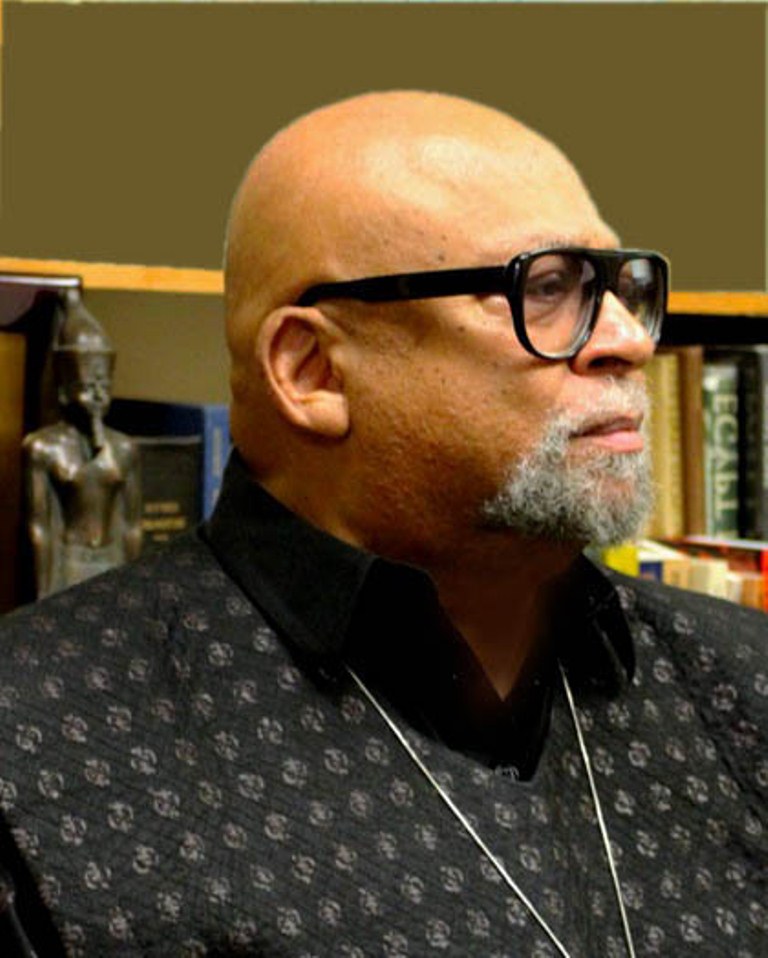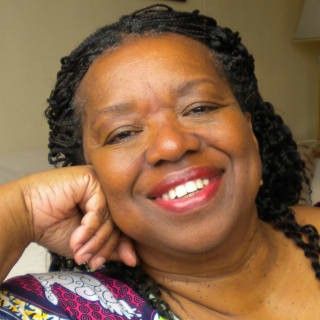
Again, this is in sankofa remembrance for our 53rdanniversary of our organization Us in righteous and relentless resistance. And thus, it is about reaching back, retrieving, reflecting, reconstructing and recommitting ourselves to a radical and righteous reconception and transformation of ourselves, society and ultimately the world as was our founding mission in those turbulent and transformative years of the Sixties.
In the 60s when we first collectively declared that we are an African people, we did not do so simply to reaffirm our historical source of origin and reclaim a history as old as humanity itself. We did it also as an act of self-determination, a reaffirmation of our right as the Nguzo Saba, the Seven Principles, say, “to define ourselves, name ourselves, create for ourselves and speak for ourselves.” Moreover, we did this to make a definite cultural claim and cultural commitment, a claim of uniqueness, distinctiveness and difference from our oppressor, and a commitment to extract and emulate the models of excellence and achievement rooted in our history and culture.
We made this claim of distinctiveness while reluctantly conceding some similarities in our thought and behavior with that of society, due to the cultural dominance of the ruling race/class and its powers of coercion and enticement. After all, we had been here so long and the dominant society had done its best and worst to insure we lost our historical memory and cultural grounding. That is to say—outlawing our languages and access to education, killing off our cultural leaders, erasing and rewriting our history, undermining our family formation, splitting our families apart with the devastating axe of the auction block, brutally imposing their nonsense names on us, “giving” us a god in their own racial and racist image and irrationally claiming they had saved us from ourselves, freed us by enslaving us and were “civilizing” us by the savagery they served as daily bread.
But where there is oppression, there is also resistance. And thus in the midst of the Holocaust of enslavement and subsequent forms of savage oppression, we held to core values of what it means to be African, even though we forgot in many, perhaps most, cases the original source of our understanding and assertion in the world. Hidden behind a thick veil of forced historical amnesia and ongoing oppression, our Africanness became invisible to us on one hand and inaccessible on the other. It is here in the 1960s that we joined our claim of cultural distinctiveness worthy of recognition and respect to a commitment to constantly study and learn from our culture and to hold fast to those core values that teach us to seek and speak truth, practice and promote justice and always pursue and do the Good.
That is why Us took up the challenge to initiate and sustain a cultural revolution, an ongoing struggle to recover, reaffirm and reconstruct the best of our culture and use it to repair and transform ourselves in the process of repairing and transforming our consciousness and the conditions of our lives in society and the world. Indeed, we maintained that the cultural revolution within precedes and makes possible the political revolution without. As Malcolm taught and reminded us, until we recapture our heritage and history and the identity embedded in it, we cannot break the bonds of White supremacy and imagine and build the new world we all want and deserve. This is the meaning and inherent message of Us’ position that we must constantly dialog with African culture, asking it questions and seeking from it answers to the fundamental issues and challenges of African and human life and then daring to add an African imagination and initiative to the ongoing historical struggle for human freedom and human flourishing in the world.
It’s important to note that this cultural core of what it means to be African has both continental and diasporan, historical and current sources. For our identity is not a fossilized product but an ongoing living project in which we all take part. This is the meaning of the Kawaida contention that Blackness, Africanness, is not a static identity, but a constantly renewed result of the struggle we wage daily to defend our dignity as persons and a people, to hold fast to those values which define our identity and gives us purpose and direction in our lives, and to avoid any proposition or practice that undermines our effort and obligation to constantly bring forth in ever expansive ways the best of what it means to be African and human in the world.
We have said that as African Americans, we are American by habit and African by choice. By this is meant that most of what we do and think has its roots in the social process that surrounds and seduces, informs and instructs us. And we do what we do often out of habit, i.e., in an unconscious and unexamined way. The mindless consumerism, vulgar individualism, the divisive and destructive competitiveness, the embrace of the racist catechism of impossibilities and inferiority directed toward us and other peoples of color, the callousness toward the vulnerable and contempt for the poor, and insensitivity to the suffering imposed by the rich and powerful on the world, all grow out of and find fertile ground in U.S. society. And each day we mindlessly and routinely follow these and similar values and practices or reject them and self-consciously choose to be and bring forth the best of what it means to be African in the world.
It is not easy to be African or Black in a White-dominated world. As Fanon taught, the intense levels of oppression can and do make some of us doubt ourselves, deny ourselves, condemn and even mutilate ourselves, psychologically and physically. And so it is important to pause, pay hommage and say asante, thanks, to those who do not doubt or deny the dignity and divinity of our personhood nor the sacredness of our narrative we know as our history, and who go forth daily with the undestroyed dignity and values inherited from our ancestors, cherishing their identity and duty as Africans to bring good into the world. Asante also to those who understand and appreciate the category African as a synonym and metaphor for excellence and the best of our culture as a moral and spiritual ideal we all must embrace in order to realize and reaffirm the best in ourselves as persons and a people.
And finally, asante to the brothers and sisters who will not stop struggling and striving ever upward, nor stop loving and believing in each other, who openly admit we need each other like the next breath, and who hold fast to the tradition of our ancestors who taught us that together in love and struggle, we can do it right, keep it real and make it good in every way and sense of the word. As always, then, let us remember and uphold the teachings of our ancestors who urge us to: continue the struggle; keep the faith; hold the line; love and respect our people and each other; seek and speak truth; do and demand justice; be constantly concerned with the well-being of the world and all in it; and rebuild the Movement which prefigures and makes possible the good world we all want and deserve and work and struggle to bring into being. Hotep. Ase. Heri.







